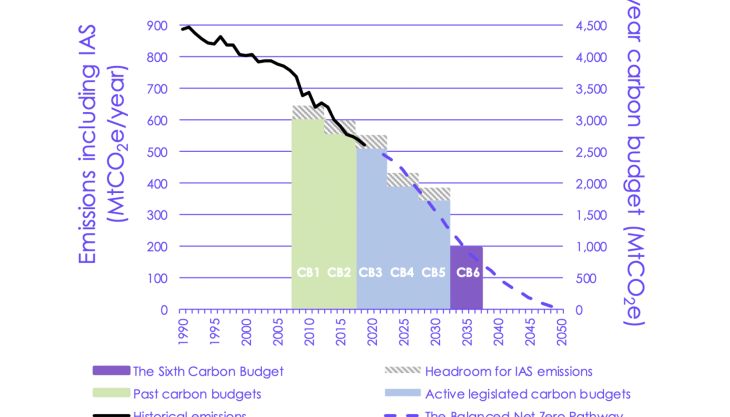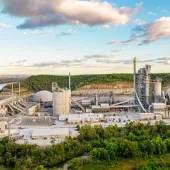
Raising the UK’s climate ambitions for 2035 puts net zero within reach; the MPA responds
EARLIER week the Climate Change Committee (CCC) presented the world’s first detailed route map for a fully decarbonized nation.
Last year, the UK became the first major economy to make net zero emissions law, and in its new landmark 1,000-page report, the CCC sets out the path to that goal over the next three decades, including the first ever detailed assessment of the changes that will result – and the key milestones that must be met.
The Sixth Carbon Budget (2033–2037) charts the decisive move to zero carbon for the UK. The CCC shows that polluting emissions must fall by almost 80% by 2035, compared with 1990 levels. This marks a big step-up in ambition, as just 18 months ago this was the UK’s 2050 goal.
To deliver this, a major investment programme across the country must be delivered, largely by the private sector. This investment will also be the key to the UK’s economic recovery in the next decade. In many areas, this will deliver real savings, as the nation will use fewer resources and adopt cleaner, more-efficient technologies to replace their fossil-fuelled predecessors.
The CCC finds that these savings will substantially reduce the cost of net zero compared with previous assessments: now down to less than 1% of GDP throughout the next 30 years. This, it says, is thanks not only to the falling cost of offshore wind, but also a range of new low-cost, low-carbon solutions in every sector.
Climate Change Committee Chairman Lord Deben said: ‘The Sixth Carbon Budget is a clear message to the world that the UK is open for low-carbon business. It’s ambitious, realistic and affordable. This is the right carbon budget for the UK at the right time. We deliver our recommendations to government with genuine enthusiasm, knowing that Britain’s decisive zero-carbon transition brings real benefits to our people and our businesses while making the fundamental changes necessary to protect our planet.’
Responding to the Sixth Carbon Budget, Dr Richard Leese, director of industrial policy, energy and climate change at the MPA and a member of the CCC’s Industry Policy Steering Group said: ‘It is positive to see these detailed recommendations to government which provide a proposed pathway to net zero by 2050 and support the Prime Minister’s recent commitment to deliver a 68% reduction in carbon by 2030.
‘We now need to see a net zero roadmap from government which provides greater clarity for essential industrial sectors to help business plan ahead and ensure that the UK remains an attractive place to invest.
‘The CCC’s recommendations are clear about the need for technologies like carbon capture, use or storage (CCUS) and it’s now critical that the Government develops a strategy for its deployment at scale as well as a package of financial support.
‘The UK concrete and cement industry stands ready to support net zero by 2050. With our ‘beyond net zero roadmap’, we will build on the extensive early action that we’ve taken, which has seen the sector deliver a 53% reduction in absolute carbon dioxide emissions since 1990 and decarbonize faster than the UK economy as a whole.’









